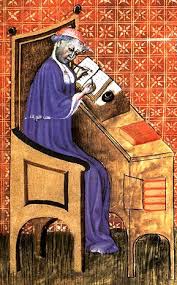Post by himself on Jun 25, 2011 0:39:30 GMT
It is also instructive to know that the term "European" as a noun pertaining to an inhabitant of the subcontinent of Europe was not in use until AD 1470. In the 11th century, there were no Europeans; there were Christians, and they did not all live in Europe. In fact, Egypt was still 50% Christian; Antioch was still Greek and Christian. (The mass conversions has only barely begun.)
The Christians had not had a problem with the Arab muslims, who approached Christian civilization with some respect. When the call to prayer went out in Jerusalem, Omar Caliph was visiting the Church of the Sepulcher. The bishop told him that as conqueror he could pray anywhere he wished. But Omar went outside the church to pray, saying that as conqueror his actions would set a precedent and he did not want to set a precedent for arrogating Christian churches.
All that changed when the Turks invaded. They were a tribal people and were pagan when they first arrived. But just as the Goths and Vandals adopted Christianity without shedding Gothic and Vandal attitudes, the Turks adopted Islam without shedding Turkish attitudes. The Turkish emirs and atabegs in the remnants of the Caliphate were direct parallels to the German kings in the remnants of the Roman Empire. There was chaos in the Middle East and Christian pilgrims were subject to attack, not only because of the zeal of new converts to Islam but simply because of the breakdown of law and order.
Manzikert and its sequel was due at least as much to Turks being Turks and to Turks being muslims. Had they remained pagan, the Saljuqs and other Ghuzz tribes (and later the Osmanlis) would have behaved much the same way.
When the crusaders won their first victory in Anatolia (and turned their conquests over to the Byzantines as they had vowed) the Shi'ite Caliph of Cairo sent them a letter of congratulations and an offer of alliance. One of the ironies was that the Egyptians had only recently recaptured Jerusalem from the Turks. If a previous caliph of Egypt - a certifiable looney tune - had not demolished the Christian churches in Jerusalem, incl. the Church of the Sepulcher, the crusaders may have been inclined to a deal. But they were not in a trusting mood and had taken an oath to make the pilgrimage to the Sepulcher.
And oddly enough, once they had done so, the vast majority of the army went home. They had not sworn to conquer Jerusalem, but to make the pilgrimage to it. The conquest was a means to that end. Since during the siege of Antioch, they believed the Emperor had forsworn himself, they felt no obligation to turn the city back over to him and so of necessity formed their own governments.
Afterwards, another oddity: there were wars with crusaders and muslims allied against muslims and crusaders.
History is always local and particular. Big broad generalities are what I call "model-based history." They can sometimes highlight trends of which the participants were themselves unaware. But we mustn't confuse the output of the model with the facts on the ground.
The Christians had not had a problem with the Arab muslims, who approached Christian civilization with some respect. When the call to prayer went out in Jerusalem, Omar Caliph was visiting the Church of the Sepulcher. The bishop told him that as conqueror he could pray anywhere he wished. But Omar went outside the church to pray, saying that as conqueror his actions would set a precedent and he did not want to set a precedent for arrogating Christian churches.
All that changed when the Turks invaded. They were a tribal people and were pagan when they first arrived. But just as the Goths and Vandals adopted Christianity without shedding Gothic and Vandal attitudes, the Turks adopted Islam without shedding Turkish attitudes. The Turkish emirs and atabegs in the remnants of the Caliphate were direct parallels to the German kings in the remnants of the Roman Empire. There was chaos in the Middle East and Christian pilgrims were subject to attack, not only because of the zeal of new converts to Islam but simply because of the breakdown of law and order.
Manzikert and its sequel was due at least as much to Turks being Turks and to Turks being muslims. Had they remained pagan, the Saljuqs and other Ghuzz tribes (and later the Osmanlis) would have behaved much the same way.
When the crusaders won their first victory in Anatolia (and turned their conquests over to the Byzantines as they had vowed) the Shi'ite Caliph of Cairo sent them a letter of congratulations and an offer of alliance. One of the ironies was that the Egyptians had only recently recaptured Jerusalem from the Turks. If a previous caliph of Egypt - a certifiable looney tune - had not demolished the Christian churches in Jerusalem, incl. the Church of the Sepulcher, the crusaders may have been inclined to a deal. But they were not in a trusting mood and had taken an oath to make the pilgrimage to the Sepulcher.
And oddly enough, once they had done so, the vast majority of the army went home. They had not sworn to conquer Jerusalem, but to make the pilgrimage to it. The conquest was a means to that end. Since during the siege of Antioch, they believed the Emperor had forsworn himself, they felt no obligation to turn the city back over to him and so of necessity formed their own governments.
Afterwards, another oddity: there were wars with crusaders and muslims allied against muslims and crusaders.
History is always local and particular. Big broad generalities are what I call "model-based history." They can sometimes highlight trends of which the participants were themselves unaware. But we mustn't confuse the output of the model with the facts on the ground.

